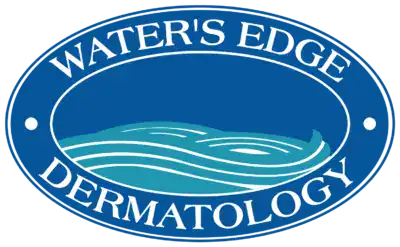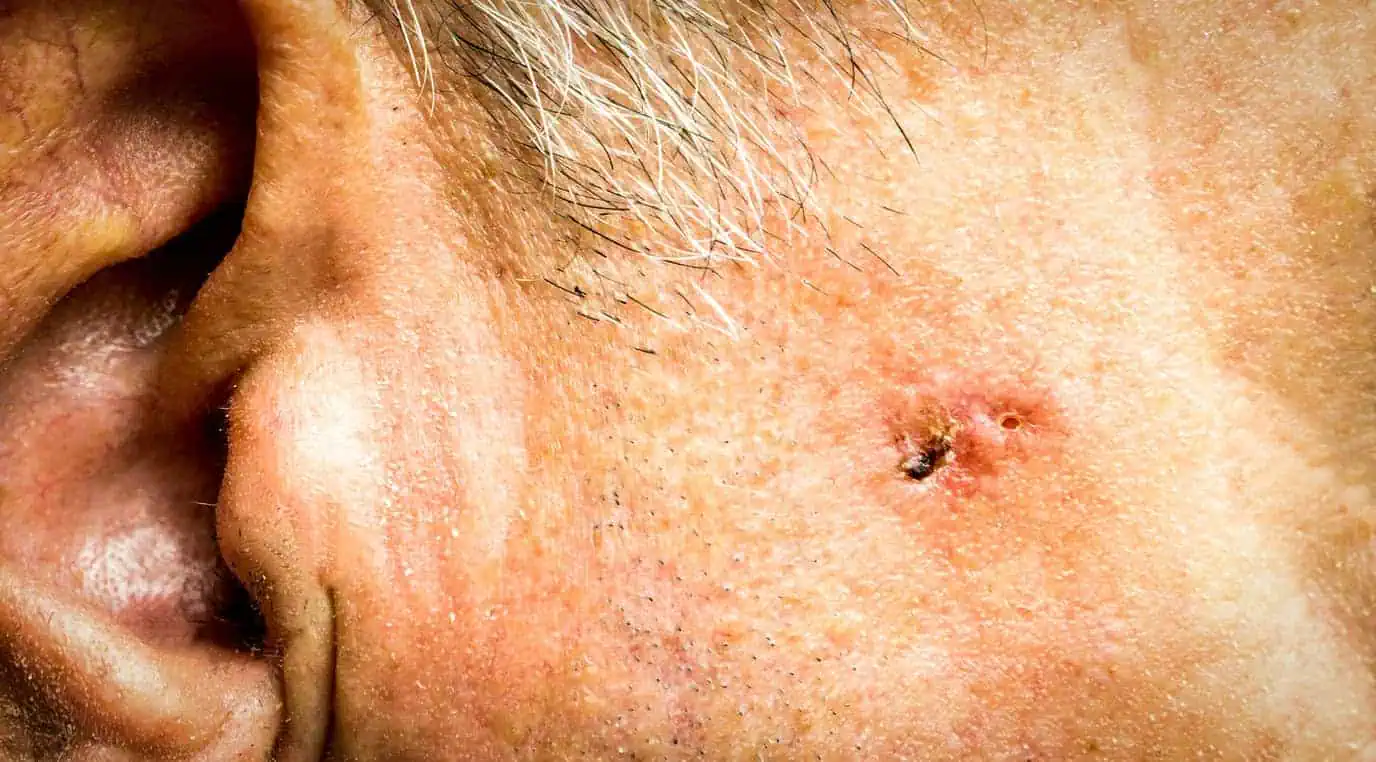Medical review by David Herold, MD
Your face is usually the first part of you people see. It’s also one of the most sun-exposed areas of your body, and one of the most common places for skin cancer to develop. If you’ve been diagnosed with skin cancer on the face, it’s important to find a dermatology practice that offers the full range of treatment options, including Mohs surgery and electron beam therapy.
The most common types of skin cancer on the face are basal cell carcinoma, which grows slowly, and squamous cell carcinoma, which grows faster. If caught and treated early, these cancers have high cure rates. Dermatologists have several ways to remove them, including surgical and nonsurgical methods.
When you’re considering your treatment options, the following tips can help you choose the best provider and achieve the best outcome. Especially for skin cancer on the face, the goal of treatment is to get rid of the cancer permanently with as little disfigurement as possible.
1. Realize that skin cancer treatment isn’t one-size-fits-all
In some cases, the best treatment for your cancer will be clear-cut. In other cases, you may have choices, and it’s in your best interest to learn about all of them.
Your dermatologist will consider many factors before recommending a skin cancer treatment, including these:
- The type and subtype of the cancer
- The stage of the cancer
- Whether the borders are clearly defined or undefined
- The location of the cancer on your face
- Whether the cancer was treated previously
- Your overall health and how well you can tolerate surgery
Surgery is often recommended to treat basal cell and squamous cell carcinomas. Surgical approaches include:
- Simple excision (cutting out the cancer and some of the healthy tissue around it)
- Electrodesiccation and curettage (scraping out the cancer with a spoon-shaped instrument, then applying heat to destroy any remaining cancer cells and stop the bleeding)
- Cryosurgery (freezing the tumor with liquid nitrogen)
- Laser surgery (removing the cancer using a beam of intense light)
- Mohs surgery
In Mohs surgery, the surgeon removes the visible cancer and then removes additional tissue one thin layer at a time until no more cancer cells are seen under a microscope. Because it preserves as much tissue as possible, Mohs surgery is often an ideal choice when the skin cancer is in a highly visible spot, or when removing more tissue could affect how a part of your face (such as your eye, nose or lip) functions.
Surgery isn’t always the only option or the best approach, however. In some cases, radiation for skin cancer is an excellent nonsurgical option, either as a secondary treatment (after undergoing another treatment) or on its own. Other nonsurgical treatments include topical chemotherapy and photodynamic therapy, in which medicine is applied to the skin and light is used to activate it.
2. Seek out a dermatology practice that offers a wide range of treatments
When you’re facing a diagnosis of skin cancer, the more treatment options your provider offers, the better. Most dermatology practices offer many of the treatments outlined above, but some treatments, including Mohs surgery and electron beam therapy (EBT), are not available at every practice.
EBT is a cutting-edge form of radiation for skin cancer that uses a very thin beam of charged particles called electrons to destroy cancer cells without harming the healthy tissue around them. Electron beam therapy for skin cancer could be an option if you can’t have surgery, or, in some cases, if you simply prefer a nonsurgical option. Compared to Mohs surgery, it may offer a better cosmetic outcome for cancer on the eyelid, ear, nose or lip. A series of daily treatments over two to six weeks is needed, but each treatment lasts only a few minutes.
3. Look for a provider with the right experience
Finding an experienced surgeon or radiation oncologist is key to getting the best result. Plus, when you’re confident in your doctor, you’ll be less anxious going into the procedure.
When you meet with a doctor you’re considering, check their credentials. At the least, the doctor should be a board-certified dermatologist. All board-certified dermatologists are trained in basic dermatologic surgeries, but if you’re considering Mohs surgery, for example, look for a doctor who has completed a fellowship in Mohs surgery and is a fellow of the American Society of Mohs Surgery. If you’re considering radiation, make sure the provider is board-certified in radiation oncology, and look for one who specializes in treating skin cancer.
It’s also important to find a doctor who is caring and who listens to your concerns, since a cancer diagnosis is never easy.
4. Ask questions
If you have skin cancer, you’ll want to know as much as possible about your cancer, your doctor and the treatment he or she is proposing. Don’t be shy about asking questions. Here are a few questions you might want to ask:
- What type and stage of skin cancer do I have?
- What are my treatment options?
- Why did you suggest the treatment you did? What are the pros and cons?
- Are there any treatment options you haven’t presented?
- How many of these treatments have you performed?
- What is the cure rate with this treatment?
- What can I expect to happen during the treatment?
- What are the possible side effects?
- Will I have a scar afterward? How big will it be?
Remember: Your doctor is in charge of providing an accurate diagnosis and recommending the best treatment for your skin cancer. As the patient, you are in charge of making sure you’re comfortable with the doctor and the proposed treatment.
Written by Stephanie Watson, a freelance writer based in Providence, Rhode Island. She has written for WebMD, Healthline, HealthCentral, Harvard Health Publications, SELF and many other consumer health publications.

